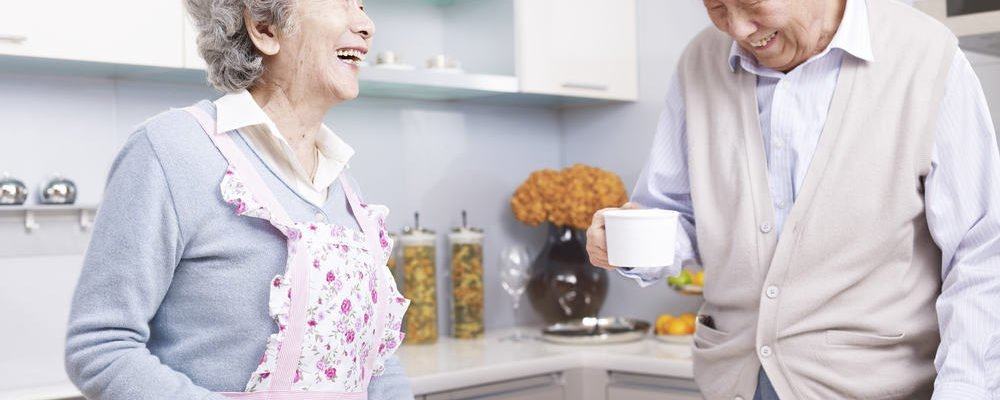Table of contents:
- Physiological changes in the elderly
- Sensory changes in the elderly affect diet
- What are the nutritional needs of the elderly?
- Guidelines for maintaining balanced nutrition for the elderly
- 1. Get used to consuming sources of calcium
- 2. Get used to eating fibrous foods
- 3. Drink water as needed
- 4. Keep doing physical activity
- 5. Limit consumption of sugar, salt, and fat
Our bodies change according to the times. The more we get older, the less our body functions. In those who are elderly or elderly, there are various changes both physically and in perceptions which then affect the nutritional needs of the elderly.
Physiological changes in the elderly
One of the things that causes changes in a person's nutritional needs is their physical condition. In the elderly, their nutritional needs are sometimes difficult to generalize. Although in general the elderly will experience a decrease in nutritional needs, but because the decrease in body mass and basal metabolic rate are different, their nutritional needs are also different. Apart from decreasing body mass and basal metabolic rate, the decreased ability of the organs to work optimally also affects the nutritional needs of the elderly.
For example, the work of the digestive system in digesting fat is not as optimal as when it was young, so the consumption of fat should also be reduced. Digestive problems such as constipation and gastritis also often occur in those who are elderly, so that the fulfillment of nutrition for the elderly is sometimes a challenge.
Sensory changes in the elderly affect diet
Not only physical changes, changes in senses and perceptions such as sensitivity to taste, smell, even hearing and sight are also factors that affect the nutritional fulfillment of the elderly. One of the problems related to perception that commonly occurs in the elderly is the reduced ability of the sense of taste. When a person's ability to taste the taste decreases, food can taste bland or bitter so that they tend to add spices such as salt or flavorings to the food, even though the consumption of salt and flavorings is one that should be limited to the elderly. A decrease in the function of smell also affects how a person chooses the type of food.
What are the nutritional needs of the elderly?
For example, in women aged 50-64 years, the energy requirement per day is 1900 kcal, approximately 300 calories less than the energy needs of adults aged 19-29 years. Another change that looks significant is the need for fat and carbohydrates. In adults the need for fat is 60-75 grams per day, while in the elderly the need for fat is only 43-53 grams.
The majority of the need for macronutrient nutrients (such as carbohydrates, fats and protein) in the elderly decreases with age. But the micronutrient nutrients (such as vitamins and minerals) tend not to change, only sodium whose amount must be reduced with increasing age.
Guidelines for maintaining balanced nutrition for the elderly
1. Get used to consuming sources of calcium
Calcium plays a role in maintaining bone health and strength. In the elderly, bone density begins to decrease so that it is at risk of causing bone and tooth loss. The elderly are encouraged to eat foods rich in calcium and vitamin D such as fish and milk. Frequent exposure to sunlight in the morning can also help the formation of vitamin D in the body.
2. Get used to eating fibrous foods
Constipation is a digestive problem that is often experienced by the elderly. Reduced consumption of fruit vegetables in old age is one of the contributing factors. Sometimes hard fruit or vegetables that are too fibrous make it difficult for the elderly to eat fruit vegetables, thus limiting them from getting enough fruit vegetables. Apart from fruit vegetables, the elderly can consume products whole grains which is also high in fiber. Fiber is important for the health of the elderly because in addition to improving digestion, fiber also functions to control fat and sugar levels in the blood.
3. Drink water as needed
As age decreases, the hydration system in the elderly also decreases so that the elderly are less sensitive to deficiency or excess fluids. Dehydration in the elderly can lead to dementia and forgetfulness. In addition, when there is a lack of fluids, sodium levels in the blood will increase, thereby increasing the risk of developing hypertension. Conversely, excess fluid can make the heart and kidneys work harder. It is advisable for the elderly to consume water as much as 1500-1600 ml or about 6 glasses per day. This is less than the recommended water consumption for adults of 8 glasses per day.
4. Keep doing physical activity
Muscle flexibility decreases with age. Muscle stiffness often occurs in the elderly because the ability of muscles to contract and relax is also reduced. The elderly are encouraged to do light physical activity such as walking leisurely, cycling, gardening, yoga, or gymnastics for the elderly. In addition to maintaining muscle flexibility, this physical activity can help maintain a healthy heart and body fitness.
5. Limit consumption of sugar, salt, and fat
Because the work of the digestive system for those who are elderly is not as optimal as it was when they were young, limiting the consumption of sugar, salt and fat is very important to maintain the health of the elderly. Consumption of excess sugar, salt and fat will increase the chances of the elderly experiencing hypertension, hypercholesterolemia, hyperglycemia, stroke, heart disease, and diabetes. The elderly are more susceptible to degenerative diseases because the system that functions to help metabolize sugar, salt and fat cannot work as well as it used to.




